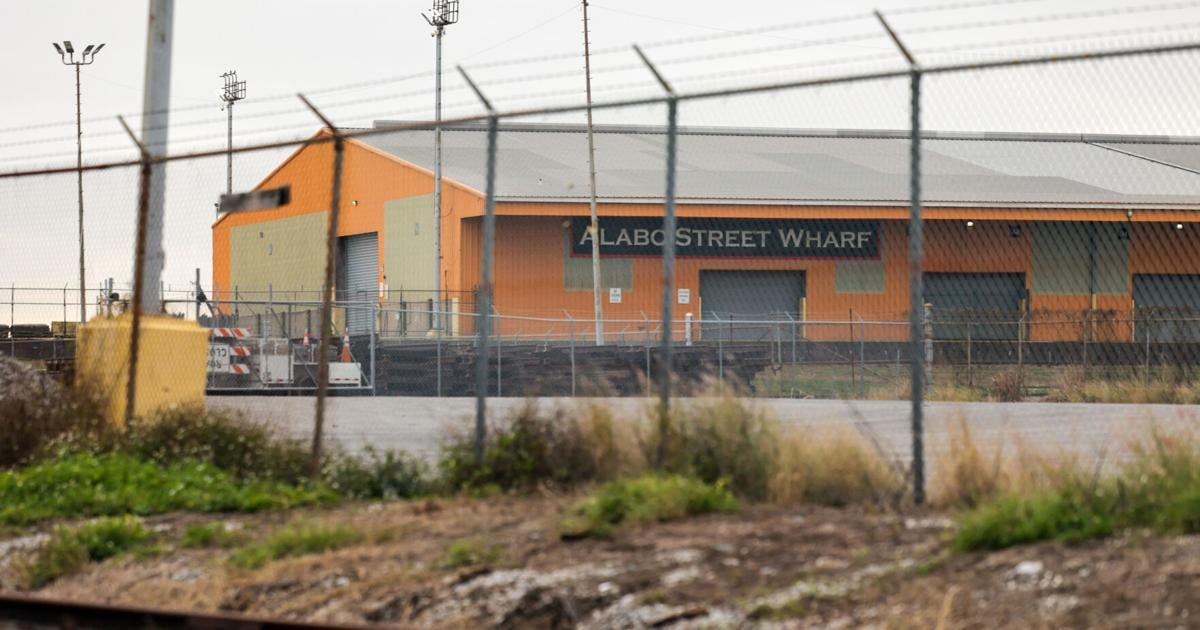A lawsuit over whether plans for a grain terminal in Holy Cross were properly shared with the public will continue, even as a judge on Friday denied a request to stop a recent public hearing related to the project.
Agreeing with lawyers for the Port, Judge Jennifer Medley denied a request by Holy Cross residents to stop a public meeting on whether the Port of New Orleans’ board should issue up to $100 million in bonds.
If approved, the money will be spent, in part, to pay for infrastructure upgrades to the Alabo Street Wharf, where Canada-based Sunrise Foods International is expected to open its controversial grain terminal by the summer.
Because the meeting was held on Monday, it was no surprise the injunction was denied. That was the only choice, Attorney Chris Ralston, who served as outside counsel for the Port, told the judge.
“The failure to show an irreparable injury, as your honor knows, is fatal to preliminary injunction request,” Ralston said. “I have yet to hear any injury, much less an irreparable injury, from the informational hearing that plaintiffs could and did attend.”
But with the vote over the bond issue still pending, the lawsuit, which accuses the Port of violating state laws around public notice for public meetings, must go on, said Holy Cross Neighborhood Association attorney Jeffrey Wittenbrick, Sr. Attorneys for the Port are expected to file a response to the lawsut soon and plead for it to be dismissed. The judge will then make another call.
Wittenbrick, whose son, Jeffrey Wittenbrick, Jr., is a Holy Cross homeowner leading the fight to stop the grain terminal, said the issue at the heart of the lawsuit is whether Port officials followed the law and gave reasonable notice before Monday’s meeting, and before another meeting where the project gained approval.
He called the timeline of events into question: Port officials published the meeting notice in The Times-Picayune | The Advocate on Saturday, Dec. 21. In the notice, residents were instructed to contact law firm Foley & Judell for more information. But when residents visited the law firm the week of Christmas, they were told no lawyers were available to talk because they were away for the holiday.
The meeting was then scheduled for Monday, between the Christmas and New Year holidays, before residents could get any details about the grain terminal or any of the other projects the bonds would support.
“I think this entire thing is an effort to subvert public meetings and public records,” Wittenbrick told the judge.
Port officials have repeatedly said their staff has followed the law both for Monday’s meeting, which was required by the IRS before bonds can be issued, and for previous meetings. The board has already granted preliminary approval to issue the bonds and it’s expected get final approval at a Jan. 30 board meeting, despite the lawsuit.
Ralston said residents were never denied any information and they should have made any requests for information in writing directly to the Port, not to the law firm listed in the notice.
Medley said that because the hearing had already happened, she had to deny the plaintiffs’ initial request.
“I was born and raised here, not too far from where this is, so I understand the public, but it is our job when we know the law to explain it to them,” Medley said.
Still, the Holy Cross residents will get to continue their lawsuit. Wittenbrick said the court is the only place to determine if the Port followed the law.
“The lawsuit’s still alive,” he said after the hearing. “Because the Board of Commissioners is not elected or accountable to anybody but the governor, it’s only going to be the court that’s going to be able to hold them to account.”

